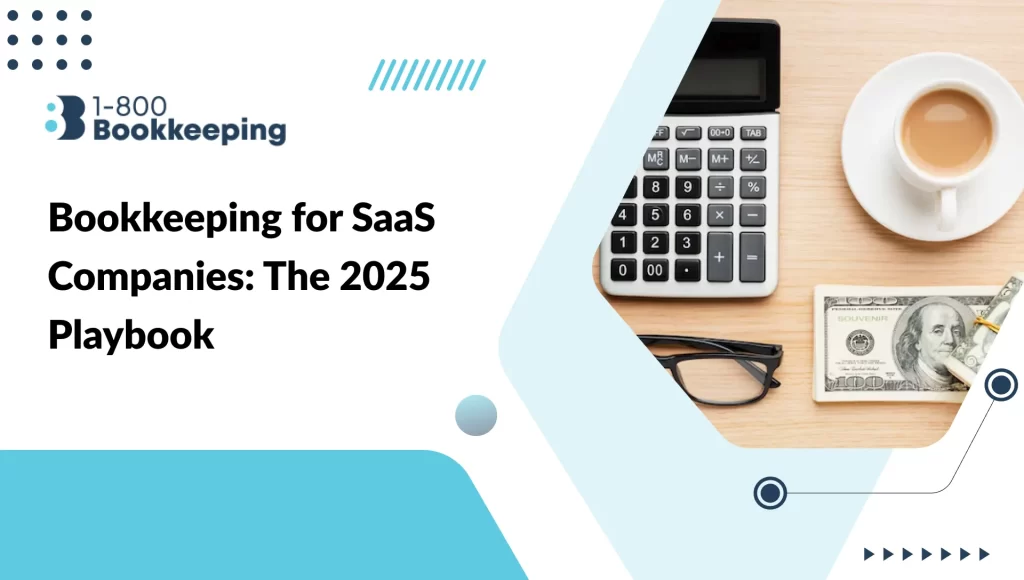Managing payroll is a critical aspect of any business, and with the advent of modern technology, a payroll management system has become an indispensable tool. But what exactly is a payroll system, and why is it so important? Let’s explore this essential business component in detail.
1-800 Bookkeeping’s Mastery in Streamlining Payroll Management:
If the complexities of payroll management are proving to be a challenge for your business, 1-800 Bookkeeping is here to assist. Our adept team of professionals excels in modernizing and managing payroll systems for firms eager to streamline their payroll operations. We provide thorough payroll management services that fit your business requirements, ensuring timely and accurate processing of employee payments, tax withholdings, and payroll reporting. Additionally, we offer continuous monthly payroll support to keep your processes smooth and up-to-date.
Don’t let payroll management stress weigh you down. Schedule a consultation with us today to explore your options and learn how 1800 Bookkeeping can help you maintain complete and effortless control over your payroll, granting you financial serenity and more time to focus on your business.
How Payroll Management System Works
In the dynamic landscape of business operations, ensuring employees are compensated correctly and promptly is necessary and a mark of a responsible and reputable organization. This is where the role of a payroll management system comes into play, intertwining technology with the complex intricacies of financial and legal compliance. Understanding a payroll management system is significant and can help businesses navigate these essential processes effectively.
What is a Payroll Management System?
A payroll management system is an integral facet of a business that deals with the financial aspects of employee salaries, allowances, deductions, gross pay, net pay, and paycheck and pay stub generation. It is specialized management software designed to automate and streamline these tasks for accuracy and efficiency.
This software can significantly vary in scope and sophistication, from basic systems adept at handling straightforward payroll tasks for small businesses to advanced platforms to manage the complexities of large organizations with diverse payroll requirements. Common capabilities include:
- Automated Calculations: To ensure minimal errors in calculating wages and deductions.
- Tax Management: To compute and withhold employee taxes according to the latest regulations.
- Integration: To synergize with other business systems, such as HR and accounting software, for a seamless workflow.
- Reporting: To create detailed reports for business analysis and regulatory compliance.
- Data Storage: To securely store sensitive employee and payroll data.
Regardless of the complexity, payroll systems’ core function remains consistent: to alleviate the burden of payroll processing from the shoulders of business managers and accountants.
Why is Payroll Management Important?
Payroll management transcends the mere disbursement of employee paychecks. It encompasses various crucial elements that, when managed poorly, can lead to a cascade of adverse effects on a business. Here are some key reasons why robust payroll management is paramount:
- Employee Morale: Regular and accurate payment of wages is integral to maintaining high employee morale. It demonstrates to employees that they are valued by the organization, which can result in increased productivity and reduced turnover.
- Company Reputation: A company known for consistent and punctual payment of salaries is likely to attract and retain top talent. Payroll errors and delays can tarnish the company’s image amongst potential employees and in the broader market.
- Compliance with Labor Laws: Many laws govern employee pay, from overtime to statutory minimum wages. A sound payroll system helps businesses comply with these laws, avoiding legal trouble and potential fines.
- Tax Filing: The complexities of payroll taxes can be overwhelming. Effective payroll management streamlines the tax filing process by accurately calculating what is owed to tax authorities and ensuring that it is paid promptly, thus averting penalties and interest on late payments.
- Financial Insights: Besides processing payments, payroll data can offer valuable insights into a company’s financial health. It can help budget, forecast labor costs, and decide on staffing needs.
What Are the Different Types of Payroll Management?
Payroll management is an umbrella term encompassing various methods and systems used to calculate and distribute employee wages and report and file payroll taxes. The payroll management system should align with the business’s needs, resources, and size. Here’s an in-depth look at the different types of payroll management available to today’s businesses.
In-House Payroll Management with Software
Many companies elect to manage payroll internally using specialized payroll software. This approach gives companies direct control over their payroll processes, enabling them to maintain payroll records, process payments, and handle tax filings within the organization.
In-house payroll software solutions range from essential to sophisticated systems, offering features such as:
- Automated Calculations: They automatically calculate earnings, deductions, and withholdings to streamline the payroll process.
- Tax Filing Support: They usually include features to assist with payroll tax calculations and filings, ensuring compliance with relevant tax laws.
- Integration Capabilities: Many software systems can be integrated with other business systems, such as time tracking and HR platforms, for more streamlined operations.
- Employee Self-Service Portals: This allows employees to access their pay stubs, tax forms, and payroll-related information online.
Outsourced Payroll Services
Outsourcing payroll involves hiring an external company to handle all aspects of payroll processing. This option is often favored by businesses that prefer to dedicate their resources to managing payroll complexities or need more expertise to do so effectively. Outsourced payroll service providers can offer the following:
- Expertise and Compliance: They bring specialized knowledge of payroll regulations and ensure compliance with applicable laws and filing requirements.
- Comprehensive Service Offerings: Many providers offer end-to-end payroll services, including processing payroll, handling direct deposits, and handling tax payments and filings.
- Time Savings: Outsourcing payroll can free up significant time for small business owners and staff, allowing them to focus on core business activities.
Online Payroll Solutions
With advancements in technology, online payroll systems have become increasingly popular. These are typically cloud-based systems that provide the benefits of automated payroll management with the added convenience of remote access. Features often include:
- Accessibility: Being cloud-based, these systems allow for payroll processing from anywhere, given internet access.
- Real-time Data: Online payroll solutions can offer up-to-the-minute data, which is invaluable for managing cash flow and making informed financial decisions.
- Security: These systems generally employ strong encryption and protocols to safeguard sensitive payroll data stored in the cloud.
- Scalability: Cloud-based systems can quickly scale with the growth of a business, making them suitable for small and large companies.
Manual Payroll Processing
Despite the prevalence of automated systems, some businesses still perform manual payroll processing, tiny businesses with a relatively small number of employees. This traditional method involves:
- Hand Calculations: Earnings and deductions are calculated by hand or with basic spreadsheets.
- Physical Records: Paper-based payroll records are maintained for each employee.
- Lower Cost: Generally, this method incurs no software costs, though it can be time-consuming and prone to errors.
Hybrid Payroll Management
Some companies adopt a hybrid approach to payroll, using a combination of in-house and outsourced services. For example, they might use in-house software for day-to-day processing but outsource tax filing and compliance functions to minimize risk and ensure accuracy.
Choosing the Right Payroll Management Method
Deciding on a payroll management method involves considering factors such as the company’s size, the complexity of the payroll needs, the level of control desired over payroll processes, budget constraints, and the willingness to handle payroll tasks internally. Each method offers distinct advantages and possible limitations, and the choice should be tailored to the specific requirements and capabilities of the business.
What Is the Payroll Process?
The payroll process is a crucial component of business operations, ensuring employees receive the compensation they are due for their services. Delving into this process reveals a multistage approach that requires attention to detail and adherence to regulatory requirements. Below, we expand on the three critical phases of the payroll process: pre-payroll activities, the actual payroll process, and post-payroll activities.
Pre-payroll Activities
Before diving into the numbers, businesses must lay a solid foundation for payroll operations. This begins with establishing a clear payroll policy. Such a policy dictates the frequency of pay (whether weekly, bi-weekly, monthly, etc.), the framework for leave encashment, and guidelines on standard benefits and deductions specific to the organization.
With the policy in place, the next crucial step involves gathering input data, significantly influencing the accuracy of the payroll calculations. This step includes:
- Time Tracking: Collecting accurate records of employee work hours, including overtime, using time management software or systems.
- Updating Employee Information: Continually updating details for new hires, terminations, and changes in employment status to reflect in the payroll system.
- Benefit Enrollments and Adjustments: Accounting for new enrollments or changes in employee benefits that could affect paycheck amounts.
Careful coordination with the human resources department is often necessary to ensure all employee data reflects the latest changes.
Actual Payroll Process
The heart of the payroll process is where meticulous calculation occurs. Payroll management software takes the front stage, efficiently processing the following:
- Gross Pay: This is calculated based on each employee’s salary or hourly wages and any additional earnings like bonuses or commissions.
- Deductions: This includes federal and state payroll taxes, Social Security, Medicare, and other expenses like retirement contributions, health insurance premiums, and wage garnishments.
- Net Pay: Arriving at the net pay is the amount an employee takes home after all deductions are accounted for.
The role of payroll management systems in this phase is to ensure impeccable accuracy and consistency, which is critical in maintaining trust and avoiding disputes or errors that could lead to financial discrepancies.
Post-payroll Process
The employee’s work still needs to be done even after paychecks have been distributed or direct deposits have been made. The post-payroll phase involves a series of tasks that solidify the payroll cycle:
- Payroll Accounting and Recordkeeping: Updating accounting records to reflect the recent payroll run and maintaining detailed records for compliance and reporting purposes.
- Payroll Compliance: Ensuring all payroll activities align with current tax laws and labor regulations.
- Payroll Tax Filing and Payments: Promptly submit payroll taxes to the appropriate government agencies to avoid penalties and interest.
- Reporting: Utilizing payroll reports generated by the payroll system to provide insights into total payroll costs, tax liabilities, and other financial analytics that assist in decision-making and budget planning.
This phase is vital for the organization’s financial health and compliance, ensuring it meets its fiduciary and legal responsibilities.
6 Reasons Payroll Systems Are Important
A well-managed payroll system is more than just an administrative necessity—it’s a pivotal business component that can have far-reaching implications. Here are six compelling reasons that highlight the importance of having an effective payroll system in place:
1. Employee Morale
A company’s workforce is its backbone, and nothing assures the well-being of employees more than knowing they will receive their hard-earned money promptly and correctly. A reliable payroll management system guarantees that wages are calculated accurately, accounting for overtime, bonuses, and other entitlements, boosting employee satisfaction and morale. When employees are assured of financial stability and consistency through timely and accurate payroll, their focus remains on productivity rather than economic concerns, leading to a healthier work environment.
2. Compensation
Compensation is not merely about the regular paycheck; it encompasses various aspects of employee remuneration, including benefits, allowances, and incentives. An efficient payroll system ensures that all forms of compensation are distributed fairly and transparently, reflecting employees’ contributions and the company’s appreciation for their hard work. Fair compensation is also integral in attracting and retaining top talent, as it demonstrates the company values its employees and is willing to invest in their success.
3. Reputation
How a company handles payroll management can significantly influence business reputation. A sound payroll system indicates a business’s operational efficiency and stability. It also signals to potential employees that the company is trustworthy and reliable. Conversely, consistent payroll errors can tarnish a company’s reputation, challenging attracting new talent and retaining existing employees.
4. Government Reporting
Processing payroll involves more than paying employees—it includes meticulous reporting and filing requirements mandated by various government agencies. Payroll management systems simplify the complexity associated with these tasks. By automating tax calculations and generating necessary reports and forms, payroll systems help businesses comply with regulatory obligations, avoiding potential audits and penalties.
5. Following Labor Laws
Compliance with labor laws is critical, and adhering to these can result in legal complications for a business, including fines and lawsuits. Labor laws cover minimum wage, overtime pay, benefits, and recordkeeping requirements. A robust payroll management system helps companies navigate these laws effortlessly, adjusting to changes and ensuring employee rights are always protected.
6. Paying Taxes
Proper payroll processing is pivotal in accurately calculating and paying payroll taxes. Payroll systems automatically calculate taxes that need to be withheld from employee wages, such as income tax, social security, and Medicare, ensuring that the business remains compliant with tax laws. Accurate tax filing and payments minimize the risk of costly penalties and keep the company in good standing with tax authorities.
Unveiling the Cost of Payroll Solutions: A Breakdown
The cost of implementing a payroll management system can feel as diverse as the businesses themselves. While a definitive price tag is elusive due to various influencing factors, let’s delve deeper to understand the cost landscape and empower informed decision-making.
Factors Shaping the Price Tag:
- Business Size: Smaller businesses, typically with fewer employees and more superficial pay structures, can expect cost-effective solutions starting around $39 per month and $5 per employee. As the size and complexity of the organization grow, so might the payroll costs.
- Payroll Intricacy: Businesses with intricate pay structures, including bonuses, commissions, deductions, or multiple locations, will likely require more advanced systems, translating to higher costs.
- Solution Choice: The chosen approach, in-house or outsourced, significantly impacts the cost structure. In-house solutions require upfront investments in payroll software, ongoing maintenance, and employee training. Conversely, outsourced services typically involve monthly fees and per-employee charges.
Beyond the Base Cost:
While the above provides a starting point, additional considerations influence the total cost:
- Direct Deposit Fees: Electronically depositing salaries directly into employee accounts often incurs a per-transaction fee.
- Tax Filing Services: Businesses can handle payroll taxes internally or outsource this task to the provider, incurring additional service fees.
- Year-End Processing: Generating year-end reports like W-2s and 1099s often involves additional charges.
Finding the Optimal Solution:
Given the variability in cost and features, carefully evaluating your needs is crucial. Here’s how to navigate the process:
- Define your requirements: Identify your needed functionalities, such as basic salary processing, tax calculations, and integrations with existing systems.
- Research potential providers: Explore various in-house software options and outsourced service providers. Compare features, pricing models, and customer reviews.
- Request quotes: Contact shortlisted providers and request customized quotes based on your specific business size, employee count, and desired functionalities.
Conclusion:
Navigating payroll management is essential for any business. With the right tools and expertise, it can become a streamlined process that enhances employee satisfaction, ensures compliance, and boosts overall efficiency. Whether you choose in-house software, outsourced services, or a hybrid approach, finding the right payroll management solution tailored to your business’s needs is critical to success.
1-800 Book Keeping’s Expertise in Payroll Management
Do you need help with your business’s payroll tasks? Look no further than the 1-800 Bookkeeping for expert assistance and guidance. Our team of seasoned professionals specializes in helping companies reclaim control of their finances. Schedule a call now.
FAQs:
1. What is the role of a payroll management system in a business?
A payroll management system handles various financial aspects of employee compensation, including salary calculations, tax withholdings, and generating paychecks or direct deposits. It streamlines payroll processes for accuracy and efficiency.
2. Why is robust payroll management important for businesses?
Robust payroll management ensures timely and accurate payment of employee wages, which boosts morale, maintains company reputation, ensures compliance with labor laws, facilitates tax filing, and provides valuable financial insights for decision-making.
3. What are the different types of payroll management methods available?
Payroll management methods include in-house software, outsourced payroll services, online payroll solutions, manual processing, and hybrid approaches. Each method offers distinct advantages and limitations tailored to the business’s needs and resources.
4. How does the payroll process unfold, from pre-payroll activities to post-payroll tasks?
The payroll process involves pre-payroll activities such as policy establishment and data gathering, the payroll processing phase encompassing gross pay calculations and deduction, and post-payroll tasks including accounting, compliance, tax filing, and reporting.
5. What factors influence the cost of implementing a payroll management system?
Factors shaping the cost of a payroll management system include business size, payroll intricacy, and the chosen solution (in-house software, outsourced services). Additional costs may include direct deposit fees, tax filing services, and year-end processing charges.
6. Why choose 1-800 Bookkeeping for payroll management assistance?
1800 Book Keeping offers expert assistance and guidance in payroll management, helping businesses reclaim control of their finances. With a team of seasoned professionals, we specialize in tailoring solutions to meet your specific payroll needs, ensuring accuracy, compliance, and efficiency.





